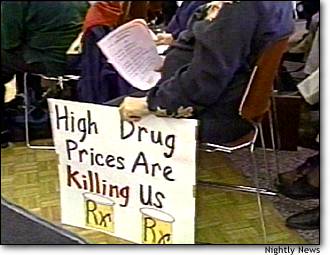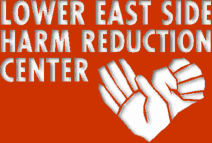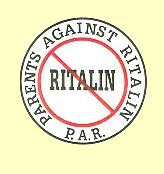Table of Contents
Text and Class Schedule Course
Objectives Requirements
Links to other Walsh Pages Meet
My Family A
sample of my garden Our
pet Buffy
Critical Thinking
Resources
Issue Resources Taking
Sides Website
Drug Issue Current
Events Debate
Guidelines
|
PROFESSOR:
|
Dr. Linda L. Walsh |
|
Office: Baker 441 Office Hours: 8:30-10:30
daily;
Mailbox: Baker 334 other times by appointment; drop-bys
welcome. |
|
Phone: 273-2690 Email: walsh@uni.edu
Course online syllabus at: http://www.uni.edu/walsh/honorssyl.html |
The world of drugs is fraught with controversy. Although the first
issues that come to mind may involve illicit drugs (their effects, use
and abuse, illegal status and the 'war' to control their availabilty, treatment
options, and so forth), there is also a great deal of debate concerning
legally available substances - prescription, over-the-counter, and our
widespread 'social' drugs like alcohol, nicotine, and caffeine. Drug controversies
occur in many different arenas: political, legal, medical, scientific,
social, philosophical/ethical, psychological, and others. Almost all are
highly complex issues. We will explore, in some depth, the reasoning and
evidence underlying different positions on many different types of issues.
We will also monitor the prevalence and range of drug-related questions
in the news during our time together. But this course is not just about
drugs and society; it is also about critically analyzing arguments and
other communications, no matter what the topic, and also skillfully presenting
and defending claims. Those skills should serve you far beyond your future
encounters with drug controversies.
Course Objectives
1) Gain a better understanding of diverse issues related to drugs, both
licit and illicit.
2) Better appreciate multiple perspectives on these controversies.
3) Learn how to critically evaluate arguments and the evidence and
reasoning underlying those arguments.
4) Improve your ability to pick out faulty reasoning and unsubstantiated
claims.
5) Become a critical reader of both paper and web resources.
6) Gain experience organizing, presenting and defending a position
on an issue, both orally and in writing.
In the Readings column, "Issue" numbers refer to our text:
Taking
Sides: Clashing Views on Controversial Issues In Drugs and Society (5th
Edition) (Raymond Goldberg, Ed.).Clicking on the link above will take
you to our textbook's website which has a variety of study aids and weblinks
for your use. RR refers to Reserve Readings (on issues not
covered in our text) available at the checkout counter in the basement
of the library.Underlined text refers to World Wide Web documents,easily
accessed from our online syllabus at http://www.uni.edu/walsh/honorssyl.html
Tentative Schedule
| Date |
Day |
Topic |
Reading Assignment\
(bold-face readings should be done before that class period;
other
websites are supplemental) |
| 08-27 |
T |
Welcome and Introductions |
Explore the 8/29 websites and find as many issues as you can. |
| 08-29 |
TH |
Bad Blood
Nuremberg Code
Medical
Decision Making Ethics |
Preface and Introduction to Taking Sides
NPR
: Remembering the Tuskegee Experiment
Troubling
Legacy of the Tuskegee Syphilis Study President
apologizes for Tuskegee Apology
For Study Done in Tuskegee CDC
Report TimelineNurse
Rivers' Report |
| 09-03 |
T |
Thinking Critically About Issues and Arguments
AND
Background on Ritalin and ADHD
NIMH
Multimodal Treatment Study
American
Academy of Pediatrics Clinical Practice Guideline |
Critical
Thinking Questions You Should Always Ask
Questions
to Ask When Examining a Position
The
Evalution of Sources
Five
Criteria for Evaluating Web Sites
Taking Sides:
Propaganda Alert
PBS-
Attention Deficit Hyperactivity Disorder
ADHD Fact
Sheet ADHD
Myths
The Ritalin
debate
Medicating
ADHD: Too much? Too soon? CHADD |
| 09-05 |
TH |
Is Ritalin Being Overprescribed?
Richard Bromfield vs. Jerry Wiener |
Issue 12
Critically evaluate Bromfield's and Weiner's arguments
Overuse
of Stimulants for Kids Reported
Did
Company Overpromote ADHD, Ritalin?
Effects of
Ritalin on Measures of Academic Performance & Classroom Behavior in
ADHD Teens |
| 09-10 |
T |
Should the FDA regulate herbal products and dietary supplements? |
RR Allen; RR Consumer Reports
Herbal
Products--What You Should Know
FDA
Warning on Herbal 'Ecstasy' Drugs
Herbal
Adverse Effects and Drug Interactions
NCAHF Position Paper
on Herbal Remedies
AndrostendioneSt.
John's Wort
An
FDA Guide to Dietary Supplements
Dietary
Supplements Linked with Illnesses & Injuries |
| 09-12 |
TH |
Will a Lower BAL Limit Reduce Accidents? |
Issue 3
Presidential
Initiative for .08 BAC National Legal Limit
AMA
ReportIowa
Senators Approve
Drunk
driving law, legal limits, laws for each state
State
BAC Limits for Drunk Driving Laws
Whats Driving You? -
State DUI laws
.08
BAC - Setting Limits, Saving Lives |
09-17 |
T |
The Drug Wars - Some background |
Foreign
Policy In Focus - Drug Control as War
Bolivia: Human
Rights Violations & the War on Drugs Focal
Point - Latin America and The Drug War Anti-Drug
Effort Criticized As More Harm Than Help |
| 09-19 |
TH |
Group 1 - Should Drugs Be Legalized?
(Josh, Jesse, Nathan, Ben) |
Issue 1
The
Drug Legalization Debate
Ending Prohibition:
Moral, practical, & social arguments
Will
Legalizing Drugs Benefit Public Health? — Yes |
| 09-24 |
T |
Group 2 - Should Marijuana Be Legalized as a Medication? (Holly, Lori,
Amanda, James) |
Issue 9
Scientific
American: Marijuana Firmly Linked to Infertility
Marijuana and Medicine:
Assessing the Science Base Consumer
Reports: Marijuana as Medicine
New Scientist
Marijuana Special Report
NEJM: Reefer Madness
-- Federal Response to California's Medical-Marijuana Law
NEJM: Federal Foolishness
and Marijuana
Workshop
on the Medical Utility of Marijuana
Archive
of MJ Resources |
| 09-26 |
TH |
Group 3 - Is DARE an Effective Program?
(Courtney, Phillip, Kelly, Gregory) |
Issue 16
Project DARE:
No Effects at 10-Year Follow-Up
Dare we admit it? Drug
war is a bust with our children. Studies
Find Dare Program Not Effective DARE
How DARE Wastes
Time DARE Update
DARE Program
Defended, Questioned
An
Analysis of DARE
Rolling
Stone gathers a $50 million lawsuit Setting
Straight Misinformation About DARE Rolling
Stone Drug Issue Truth
or D.A.R.E.: Dubious Drug-Ed Program Takes NY |
| 10-01 |
T |
Road Trip to Nobel
Conference at Gustavus Adolphus College/ Group Work Day |
|
| 10-03 |
TH |
Should There Be Restrictions on the Advertising of Prescription Drugs? |
Issue 13
Rise
of DTC Advertising of Prescription Drugs- JAMA
CNN - Prescription
ads carry weight with patients
Welcome to EthicAdIPI
Policy Report - # 155
The
DTC Blitz ACP:
DTC Advertising Opinions
Consumer
ads: How should doctors handle the pressure? |
| 10-08 |
T |
Group 4 - Should Pregnant Women Who Use Drugs Be Prosecuted?
(Tracy, Ashley, Brooke, Erin) |
Issue 5
Fact
Sheet - FAS What
is FAS? Nofas
Home Page
Chan-Criminializing
Drug Use In Pregnancy Paltrow-Pregnant
Drug Users and the Attack Against Roe v. Wade Punishment
and Prejudice: Judging Drug-Using Pregnant Women Punishing
Women for their Behavior During Pregnancy When
Pregnant Women Use Crack The
Politics of Fetal/Maternal Conflict |
| 10-10 |
TH |
MACTOP? / Group Work Day |
|
| 10-15 |
T |
Group 5 - Should All Use of Ecstasy Be Prohibited?
(Jodi, Sabrina, Virginia) |
RR Halgin(Ed.) - Issue 5
NIDA
Scientific Findings on MDMA/Ecstasy
A Psychotherapist
Using E Cognitive
performance in users of MDMA: evidence for memory deficits MDMA
Neurotoxicity Controversy
Effects
on Primates Ecstasy's
Legacy Club
Drug May Impair Memory DEA
Resources, For Law Enforcement Officers, Intelligence Reports, Club Drugs:
An Update DEA
Resources, For Law Enforcement Officers, Intelligence Reports, Ecstasy
Rolling Across Europe MDMA
Review MDMA
Archive |
| 10-17 |
TH |
First Half Test |
|
|
|
Midterm Grades Due |
|
| 10-22 |
T |
|
|
| 10-24 |
TH |
Group 6 - Is Addiction/Alcoholism a Choice?
(Courtney, Amanda, Nathan) |
Issue 6 + RR Slife (8th Ed.) - Issue 11
Disease Concept
of Alcoholism Genetic
factors in alcoholism Neurobiological
factors in alcoholism
Disease concept
of alcoholism should be rejected
Addiction: A Social
DiseaseWhat
Addiction Is & Is Not
Genetics of AlcoholismAlcoholism:
A Physical Disease The
Implications and Limitations of Genetic Models of Alcoholism and Other
Addictions Second
Thoughts About a Gene for Alcoholism |
| 10-29 |
T |
Group 7 - Does Drug Testing Violate Employee's Civil Rights?
(Josh, Virginia, Kelly, Greg) |
Issue 17
Drug Testing News
ACLU
- Drug Testing: A Bad Investment
IPRC
- Prevention Primer: Drug Testing in the Workplace Drug
Testing Information Menu Institute
for a Drug-Free Workplace Gallup Survey ACLU
Briefing Paper Number 5 ACLU
In Brief: Workplace Drug Testing |
| 10-31 |
TH |
Group 8 - Should the FDA Prohibit Tobacco Advertising?
(Ben, Tracy, Nicole, James) |
RR Goldberg (4th Ed.) - Issue 14; Goldberg (3rd ed.) 232-235
The Ghost
of Cigarette Advertising Past
Dr. Luik
- The 'Smee Report'
Joe Camel Campaign:
Mangini v. R.J. Reynolds Tobacco Company Collection Tobacco
Ad Gallery Tobacco
Explained: Marketing to children Tobacco
Ads in Magazines |
| 11-02 |
Sat. |
Road Trip to Tristate Undergrad Research Conference at Loras College |
|
| 11-05 |
T |
Group 9 - Should the Courts Be Able to Order Women to Use Long-Term
Contraceptives?
(Sabrina, Brooke, Jesse, Erin) |
RR Levine (Ed.) - Issue 8
Long-Acting
Contraceptives: Ethical Considerations
-
The
Impact of Norplant on Minority Communities
|
| 11-07 |
TH |
Group 10 - Should Psychologists Be Allowed to Prescribe Psychotherapeutic
Drugs?
(Holly, Jodi, Ashley, Phil) |
-
RR Slife (10th Ed.) - Issue 12
-
Prescriptive Authority for
Psychologists: A Matter of Professional Evolution Prescription
Privileges for Ph,D.'s? Prescription
Privileges: An Opportunity Prescription
Privileges Position
Papers from Former APA President
-
N.M.Governor Signs Landmark
Law on Prescription Privileges for Psychologists APA’s
Examination in Psychopharmacology: Project Nearing Completion
|
|
|
Note: Teams may select their own topic for their last
presentation; the *following are just suggestion drawn from our surveys,
plus a list of those who expressed an interest. Thus these are not established
groups until teams of 4-5 confirm their topic selections. |
|
| 11-12 |
T |
Is Drug Abuse Treatment Effective? |
Issue 18 |
| 11-14 |
TH |
Is Caffeine Bad For You? |
Caffeine
Quiz
Caffeine: The Inside
Scoop
Caffeine Content
of Foods and Drugs Chart |
| 11-19 |
T |
Secondhand Smoke (Virginia, Sabrina, Courtney, Amanda) |
Issue 14 |
| 11-21 |
TH |
Contraception Issues
(Holly, Phillip, James, Tracy, Kelly) |
RR Trussell et al.
Emergency contraception,
over-the-counter provision, and Tony Blair's 'moral concerns' France
to introduce Emergency Contraception in Schools Emergency
Contraception to be available OTC in UK FDA
may make oral contraceptives OTC Emergency
Contraception Pill
should be available 'over-the-counter' says its inventor Going
Over the Counter? Legislators to Debate Future of the Pill ACOG
Supports Safety/Availability of OTC Emergency Contraception Emergency
Contraception Emergency
Contraception
RU486
- Safe, Legal, and Unavailable |
| 11-26 |
T |
Drug Use Portrayal in Cinema:
Accurate or Inaccurate
Does it influence attitudes and use?
What's the take-home message?
Bring video clips, movie descriptions, movie treats! |
Alcohol
and Drugs in the Cinema
Substance
Use in Popular Movies and Music
Drug
Use in Animated Films
ABCNEWS.com
: Media Portrayal of Drugs
Seeing
Movie Stars Smoke Makes Teens More Vulnerable to Tobacco Use
NCADI
Media Literacy |
| 12-03 |
T |
Are Anti-Drug Media and Parental Efforts Effective?
(Nate, Brooke, Ashley, Jodi) |
Issue 19 |
| 12-05 |
TH |
Should the Religious Use of Illegal Substances Be Protected? (Jesse,
Josh and Greg) |
"The
Psychedelics and Religion" by Walter Houston Clark
Peyote LawCongressional
Record June 29, 1993, S8221-S8223 Hemp
in religion Guam
Supreme Court Rules That Rastafarians Have a Religious Right to Possess
Marijuana Free from Criminal Prosecution Under Guam's Organic Act |
| 12-10 |
T |
Antidepressant Issues
(Lori, Ben, Erin) |
Drugs
Commonly Prescribed for Depression
Newer Pharmacotherapies
Role
of Placebo Effect in Antidepressant Action |
| 12-12 |
TH |
Second Half Exam |
|
Course Requirements
1) Class participation (120 pts, or ~20%))
2) Working with classmates to present 3 different controversal issues
during the semester.(30 pts each or 15% total)
3) Writing 3 supported opinion papers on those issues. (50 pts each,
or ~25% total)
4) Two exams over the content covered in our readings and discussions.(~120
pts each, or ~ 40% total)
Class Participation. Active class discussion is essential to
a seminar class and demands completing the readings on time (before class)
and critically evaluating the authors' arguments so that you can critique
them in class. Attendence is required but not sufficient. The frequency
and quality of your discussion will determine 40% of your particpation
grade. I would recommend coming to class with notes on the required text
readings, including your reactions. Each day that we have required readings
(except when you are presenting), also turn in a 3 x 5 index card containing
your name and a minimum of 2 well thought out discussion questions on the
readings at the beginning of class. The completion of as well as the quality
of your submitted discussion questions will determine another 40% of your
participation grade. Finally, to encourage your awareness of the prevalence
of drug-related issues, you are required to turn a drug issue "current
event" to share with the class at least once every 4 weeks of the semester
(at least 4 total). These can be current drug issues reported in newspaper
or magazine articles or on the web, drug issues discussed on public radio
( recommended: National Public Radio's Morning Edition (mornings before
9:00) or All Things Considered (3:00-6:00 afternoons, both available on
KUNI 90.9 fm or via KUNI's website). This is one way we can at least mention
the many issues we may not be able to cover in detail this semester.
Class Presentations. Using class responses to our topic survey
I selected the most highly rated issues and assigned students to groups
to present 10 of those topics. I did my best to assign you to issues which
you indicated were your favorites, although this was not possible in all
cases. For some topics, however, all students wanted to present the same
side of the argument. In those cases we can draw cards to choose sides
(high card chooses first, ace is high) or you can negotiate with your teammates.
The first topic you present will be as an informal debate. Later topics
may also be done as debates, or your team may choose another format, such
as holding a panel discussion, or making a presentation and then leading
class discussion. No matter what the format, you should go beyond the required
readings to find quality print (required) and web resources to bolster
your evidence. Use guidelines on How
to Evaluate Sources to help select your supporting documents. Use of
an overhead outline or handout detailing your claims and supporting evidence
is strongly recommended. If all goes as planned, the final round of presentations
will be on issues not included in our text (hence requiring more team research
and organization). I have listed some possible topics based on survey data,
but feel free to suggest other final topics..
Opinion Papers allow a less time-pressured presentation of your
case, presenting your claims and support and incorporating evidence from
the quality sources you have uncovered. Be sure to write these papers in
your own words. I suggest outlining your argument and then setting your
sources aside while you write your paper (so as not to be tempted by another's
words). You can, of course, return to your sources, when you are done,
to doublecheck your accuracy.
Exams will contain a combination of mutliple choice and essay
questions based on required readings and class discussion. You will not
be tested on supplemental websites but websites might help you answer
essay questions (e.g. by providing more evidence or another point of view,
raising more issues, etc.). There are practice multiple choice questions
on our
textbook's website.
Your final course grade will be assigned according to this scale:
|
Grade
|
Percent
|
Grade
|
Percent
|
Grade
|
Percent
|
|
A
|
93.0-100.0%
|
B-
|
80.0 - 82.9%
|
D+
|
67.0 - 69.9%
|
|
A-
|
90.0 - 92.9%
|
C+
|
77.0 - 79.9%
|
D
|
63.0 - 66.9%
|
|
B+
|
87.0 - 89.9%
|
C
|
73.0 - 76.9%
|
D-
|
60.0 - 62.9%
|
|
B
|
83.0 - 86.9%
|
C-
|
70.0 - 72.9%
|
F
|
0.0 - 59.9%
|
About Your Prof
Birthplace: Chicago, Illinois
Education: B.S. (Psychology) University of Illinois, Chicago;
M.A. (Biopsychology) University of Chicago;
Ph.D. (Biopsychology) University of Chicago
Married: James Walsh (attorney)
Children: 3 girls (Jennifer (19), Sara (17), & Annie
(13))
Hobbies: Gardening, gourmet cooking, travel, volleyball,
reading
Most unusual experiences: Performing brain surgery on rats,
riding an elephant (twice!), climbing the Great Pyramid, wearing a live
python around my neck, flying in a blimp, visiting ancient Greek ruins,
giving birth











